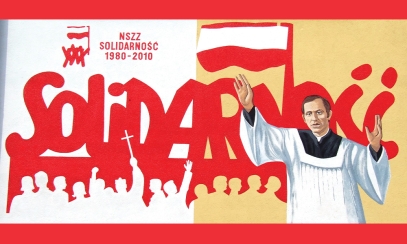
The dignity of work and the rights of workers
A series on the social doctrine of the Church
A series on the social doctrine of the Church
The fifth of our seven themes of Catholic Social Teaching regards “the dignity of work and the rights of workers.” Human work can be considered generally as those efforts to “exercise dominion over the earth and subdue it.” (Gen. 1:26 ff.) Human work can also be considered more specifically or personally as it becomes a manifestation of a certain person’s sacred vocation in Christ to transform this world for the good.
The fifth of our seven themes of Catholic Social Teaching regards “the dignity of work and the rights of workers.” Human work can be considered generally as those efforts to “exercise dominion over the earth and subdue it.” (Gen. 1:26 ff.) Human work can also be considered more specifically or personally as it becomes a manifestation of a certain person’s sacred vocation in Christ to transform this world for the good.
In the Rule of St. Benedict, written almost 1,500 years ago, there is an important insight: “Consider the tools of the monastery as sacred as the vessels upon the altar.” St. Benedict understood clearly the profound dignity of work when it is connected to the purposes of God for this world He has chosen to redeem. For St. Benedict, there was no work too humble to give glory and honor to God – all work in this light gives dignity to the human person. What challenges this correct understanding, however, are the patterns of exploitation and abuse many workers experience.
Objectification of the worker, reducing him/her to a simple function, is, like any objectification, a great sin and offense to God and to the human person. We see many circumstances in which the worker is simply exploited for his/her labor without any consideration for the essential dignity of that person. Objectification is to reduce the human person to serve as an object that selfishly meets my needs, without any consideration of the essential needs of that person. We see this objectification when we encounter workers who are not properly paid for their labor and are not able to provide for themselves the basic needs of the person: food, clothing, shelter, stability, and freedom from harm.
We see this objectification when workers are denied what is needed to provide normal family life - work that allows a person to live in a home with spouse and family rather than leaving for work far away. We also see objectification when workers are not allowed the time to participate in divine worship, which is essential to the human experience. We see objectification when workers are coerced into types of labor that are by nature sinful and degrading, even when “the money is good.”
Work is an inescapable reality for the human person. Each person must engage labor in some fashion in order to transform this created world. Without relationship to God, however, work loses its proper significance and becomes a draining and diminishing force. Connected to God’s purposes and desires for our salvation, however, work becomes a cooperation with God in the transformation of this world for the good. Every Christian is called to examine his/her relationship to work and how it can lead us to a deeper relationship with God and realize our human vocation to transform this world for the purposes of the Creator.
Father John G. McDonald is currently pastor of Sacred Heart of Jesus Catholic Church in Anniston. He was principal and then president of John Carroll Catholic High School from 2008 to 2016, and he served as the Carl J. Peter Chair of Homiletics at the Pontifical North American College in Rome from 2016 to 2019.



